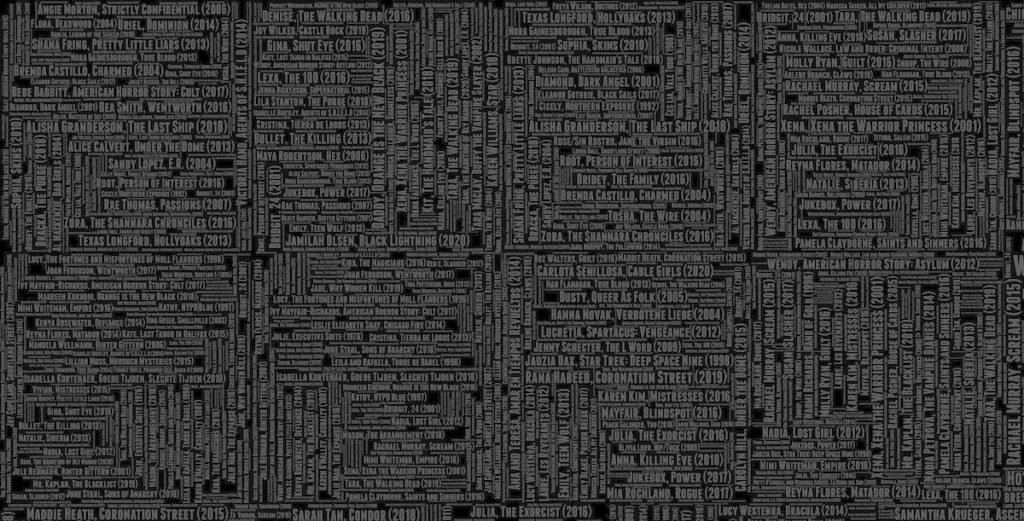There’s a (large) part of me that is so happy to see people getting degrees on queer studies. Especially queer tv.
Like a lot of projects about queer television, this one ties back in to the death of Lexa on The 100. March 3rd, 2016, was a pretty rough day for a lot of us. I’d just gotten back from a business trip to Miami where I’d actually talked up the show to a friend who was on the fence. She had not yet watched by the time this episode aired, and I texted her to warn her. We were both old Buffy fans, and the parallels are impossible to miss.
And like a lot of people who are passionate about queer representation on TV, Evangeline Aguas (she/her) did not take this affront lying down. In 2019 she worked on a book, Queerbaiting and Fandom: Teasing Fans through Homoerotic Possibilities. And in 2021, amidst COVID and a world that feels like it’s on fire, Aguas also finished her project “Queer Interruptions.”
Interruptions?
A feeling shared by many of us is that our psychological development, as queers in a world where we’re not well represented, can be stunted. If you happen to know people who are transitioning, you may have heard a lament that they wish they’d done it sooner so they could enjoy some pretty stereotypical life experiences. Experiences like, for example, sleepovers with the girls is not something a young trans woman may get to do if she isn’t given the opportunity to transition until adulthood.
From a smaller perspective, most (if not all) queers have grown up not seeing ourselves well represented on television, which creates a strange dichotomy. We don’t learn how to act with people we’re attracted to because we have few role models. Now, if we were lucky enough to have some older queers in our lives, then we do have some good examples. Sometimes our non-queer friends and family fill in.
But the reality is that a lot of us learn how to ‘people’ from the media. Television, and before it radio, and books, and stories, provide examples of how to ‘be.’ We remember stories more than dry facts, and we attach ourselves to concepts that comfort. Ultimately, that’s why I strongly feel representation matters more than just the acceptance of seeing aspects of our selves on screen. It’s not just an affirmation of existence (though it absolutely is that), it’s also a guide.
In short, a queer life is one where our ability to mature is interrupted by a lack of representation.
Death, The Big Interruption
In her project, Aguas tackles the convoluted experience of queer time by focusing on the queer female and genderqueer fans of the series’ same-sex couple, Clarke and Lexa - AKA: the “Clexa” fans. She asked them how they experience time, how they feel compared to their non-queer peers, how the LGBTQ+ rights movement changes things, and what do they see as their own queer future.
[The] project uses the death of a queer television character as an entry point to discuss how these fans experience time differently—a queer experience of time—when surrounded by the heteronormative world around them.
Queer Interruptions
Watch Time Travel
It’s a heady topic, I won’t lie. One of the videos (Queer Anachronism: Bury Your Gays and ‘Feeling Backward’) includes clips of Lexa’s death.
But the thing is… you’re not alone. We’re not alone. And while we are still struggling to carve space out so all of our stories can be told, if you’ve ever felt out of step with the world, know you have friends.
